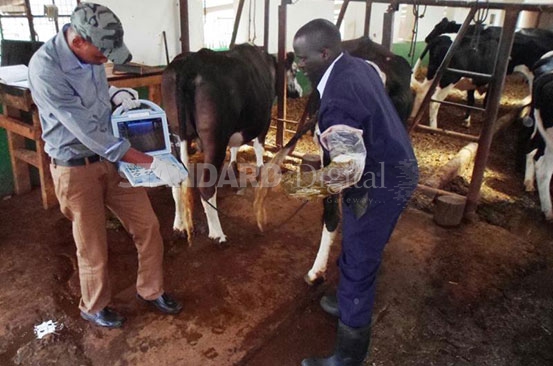×
The Standard e-Paper
Kenya’s Boldest Voice

Most people know about ultrasound for humans but few have heard of the same technology for cows. Well, farmers in North Rift have embraced a new technology that will see their cows calve within 14 months instead of the normal two years.
Eldosirikwa Dairy Consultants, the group behind this technology, say the machine can confirm pregnancy as early as 30 days after artificial insemination.